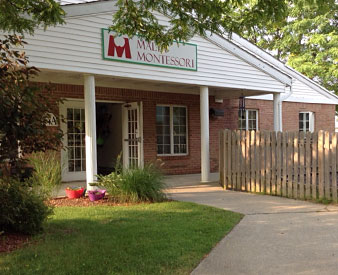The Elementary School Years Ages 6-9
Dr. Maria Montessori describes the elementary-age child as a very different being from the younger, preschool child. In Dr. Montessori’s view, successive levels of education must correspond to the successive stages of the development of the child. Thus educational approach for students between the ages of 6 and 12 is not a direct continuation of what has gone before, although it is, of course, built upon the foundation laid in early childhood.
Montessori reminds us of three important tendencies emerging at the elementary school age: the transition of the child’s mind from concrete to abstract reasoning, the birth of a moral sense, and the intensification of the drive to explore the natural and social environment.
The child at this stage of life shows a growing capacity for tackling problems, for reasoning, socializing, and harnessing the imagination.
Characteristics of the Montessori Elementary Program
The Montessori elementary program is designed to meet the development needs of each individual child in a way that is both faithful to Dr. Montessori’s insights and consistent with the expectations of American parents at the dawn of the 21st century.
Social and Moral Development
Children of this age demonstrate an intense desire to develop strong connections with their peers. They take increasing responsibility for their own conduct in personal relationships as well as in caring for the environment.
Dr. Montessori pointed out that morality has a practical side that governs social relationships and a spiritual side that presides over the awakening of conscience. Questions of right and wrong are considered in class meetings, which serve as arenas for discussions of fairness, rules, and procedures. The class meetings also encourage cooperative effort. This is the stage during which an individual’s sense of justice is formed and these experiences help children build and internalize a moral code.
Physical and Motor Development
Freedom of movement, open workspace, and uninterrupted blocks of time for individual and group projects all help to support the needs of children from 6-12 in gaining control over their growing bodies, as well as their drive toward autonomy.
Physical exercise through non-competitive sports and games helps develop large motor skills in writing, math, and science. As the children grow, the many hands-on projects of the curriculum provide increasingly sophisticated and challenging small-motor exercises.


